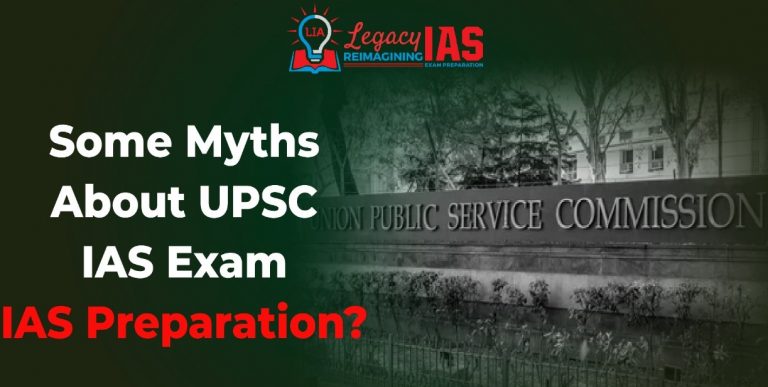Preparation time for exams is the most crucial time for a student. However, myths and rumours can cause great destruction and hopelessness for the students. Well not to worry as 10 of these myths are to be debunked in this article.
Exams are tough
Stating it as the ‘mother of all exams’, IAS students and laypersons have come out saying that these exams have been tough. This is mainly because the passing percentage is less than 1% which is very low. In actuality, about 9—10 candidates apply, of which half of them take these exams. And out of these 4—5 candidates who did give the exams not all of them take the exams seriously. Although the IAS eligibility criteria allow 6 attempts, many just appear once. Those who have succeeded in these exams will tell you that complete dedication and persistent approach in contrast with good coaching can get anyone through these exams.
Only the toppers get it
The list of IAS toppers released every year speaks otherwise of this myth. Most of the toppers come from ordinary schools and colleges and belong to regions of the country which are backward and have little to no scope for any kind of IAS Interview Guidance. And some of the toppers have been weak in their academics. All of this does not affect the result of UPSC. As long as the candidate takes the right approach to this exam, and prepares for it to attain the right guidance is most likely to succeed.
Candidates are expected to know everything
One of the most stressful things regarding this exam is that candidates think they are bound to know everything regarding the syllabus. Sure the syllabus of UPSC is very vast except for the subject of the current affairs as this does not have any outline. Current affairs are something that candidates can acquire knowledge about through daily news and magazines. Since most of the syllabus is covered in the school and college like the history and geography and also including general sciences, candidates have nothing much to stress about. Most of the syllabus will just be a revision.
Learning facts can get through the exams
The UPSC exams are highly based on one’s understanding of the particular subjects in the syllabus instead of factual knowledge. Hence candidates do not have to spend hours rote learning everything. Also, this might not even be the best way of learning to begin with. It is best to create an understanding and build concepts. This will prove effective, increase knowledge and boost learning power. IAS exams also encourage this as it assesses one’s understanding and conceptual clarity as well as analytical abilities.
No hope without coaching
In this era where every information is just a click away, the need for physical classes has reduced significantly. For those who are capable of self-studying, it would be easy for them to get everything from the internet and prepare for their exams. UPSC Coaching in Bangalore is an option that is not necessary to have in order to pass the exam. Note, magazines to study current affairs and more are all available on the internet. This also helps save a lot of money.
No improvement can be done in writing skills
This myth is highly contradicting as the amount of effort input into it depends on the candidate. Candidates can improve their writing skills by practising answer writing as this will help their memory power as well as their confidence level. In reality, it assesses a candidate in what and how to write on the exam paper. Testing oneself can benefit significantly by Improves time management in answer writing, giving a real feel of the main exam, improving the speed of answer writing, and helping candidates understand their own weak and strong areas.
A higher score helps pass the exam
The UPSC Prelim has negative marking criteria which means every wrong answer gets a negative mark. This is one of the papers where guesswork does not come in handy and the candidate has to be very confident when attempting answers. Practising past Prelim papers followed by intelligent guesswork through the elimination principle can help overcome this problem.
16 hours of study a day can help with the exam preparation
It is not the quantity but the quality that counts. Regardless of how many hours are put into studying, if not much effort is put into learning during those hours, then the time is wasted. Some students find it easy to go on for 14-16 hours but others can hardly pass through 6-7 hours a day. Students should do what is comfortable for them and what they are accustomed to. Just make sure the hours spent are fruitful in terms of practice and learning.
More the books better the preparation
It is best to read a lot of books to cover all the topics for the exam. However, it is best not to possess more books regarding one particular subject. Going through them will waste a lot of time as most of it will be repetitive. Just go for books that are recommended by the UPSC and go through them. This will help you study effectively.
Making notes for every topic of the subject is important
This is not necessary at all. Not every topic needs notes to be made. Most of the knowledge can be directly obtained from the source.
Conclusion
Believing in oneself is very important and there is no need to heed such rumours and myths. This only causes distraction. If the goals are set and a candidate is determined to achieve them then there is nothing that will stop him or her from achieving it.



